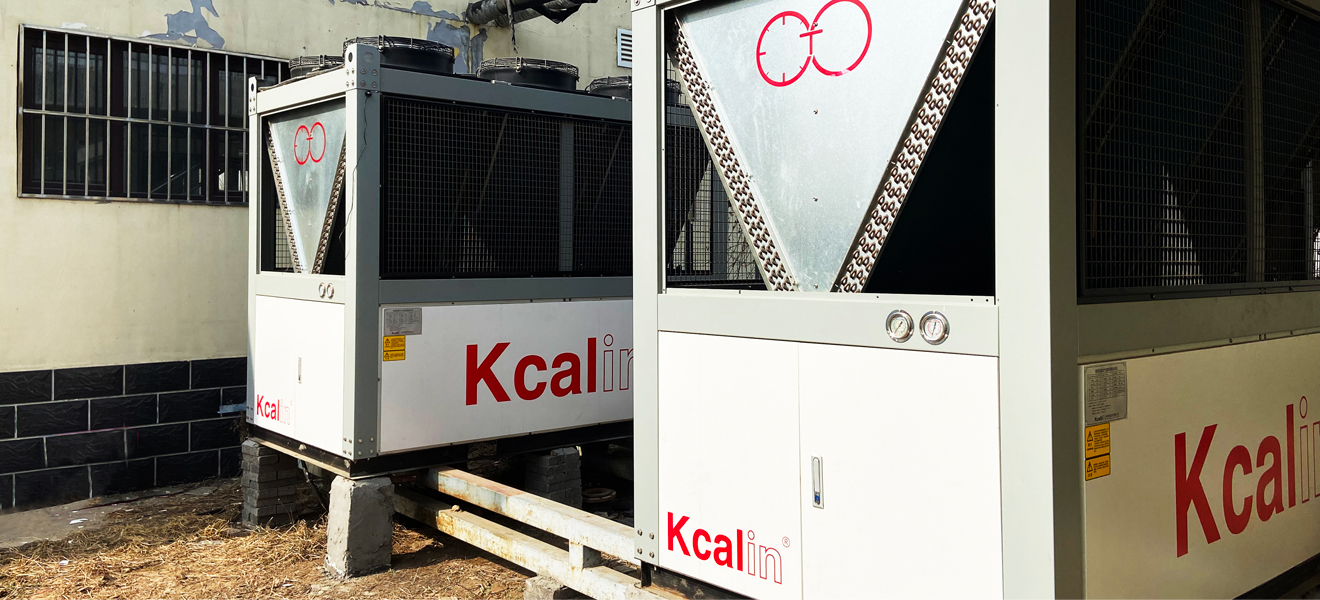In today's heating and cooling market, heat pump technology is becoming increasingly popular due to its high efficiency, energy conservation, and environmental friendliness. Heat pump technology has a wide range of application scenarios, from residential homes to commercial buildings, where the presence of heat pump systems can be seen. Among them, air-cooled heat pump units and air source heat pump units are two common types. How should consumers and businesses make decisions when facing these two choices?
An air-cooled heat pump unit is a device that exchanges heat through the heat in the air. Its working principle is to absorb the heat from the air into the refrigerant through a fan, then increase the temperature of the refrigerant through a compressor, and release the heat to the environment that needs to be heated through a condenser. Air cooled heat pump units are generally suitable for smaller indoor spaces, and installation and maintenance are relatively simple.
Air source heat pump units are also devices that use heat from the air for heat exchange, but their technology is better. Air source heat pumps can not only operate in warm weather conditions, but also operate efficiently in cold weather conditions. Air source heat pump units are usually suitable for heating and cooling needs in larger spaces, especially in environments that require high efficiency and energy conservation.

Comparison of working principles between two types of heat pump units
The working principle of air-cooled heat pump units is as follows:
Evaporation: The fan absorbs heat from the external air into the evaporator, where the refrigerant evaporates and absorbs heat.
Compression: After absorbing heat, the refrigerant is compressed by the compressor, causing an increase in temperature and pressure.
Condensation: High temperature and high pressure refrigerant releases heat through the condenser, transferring it to the indoor air or water system, and the refrigerant condenses into a liquid.
Throttling: The refrigerant is depressurized and cooled through a throttle valve, and then re enters the evaporator for recycling.
The working principle of an air source heat pump unit is similar to that of an air-cooled heat pump unit, but its technology is more complex and efficient:
Heat absorption: Air source heat pumps absorb heat from the air and can operate efficiently even in low-temperature environments. Its evaporator design is better and can effectively absorb heat under extremely cold conditions.
Compression: The refrigerant after heat absorption is compressed by the compressor, resulting in a significant increase in temperature and pressure.
Heat release: High temperature and high pressure refrigerant releases heat through the condenser, transferring it to the heating or hot water system, and the refrigerant condenses into a liquid.
Throttling: The refrigerant is depressurized and cooled through a throttling device, and then enters the heat absorption cycle again.
How to choose a suitable heat pump unit
Climate conditions: Select suitable heat pump units based on the climate conditions of the region. Warm climate areas can choose air-cooled heat pump units, while cold climate areas recommend choosing air source heat pump units.
Usage requirements: Consider the purpose and usage requirements of the building. If it is a small residential or commercial building, you can choose air-cooled heat pump units; If it is a large commercial building or a project that requires high efficiency and energy conservation, choosing an air source heat pump unit is more suitable.
Budget and economic benefits: Choose based on budget and economic benefits. Projects with limited initial investment can choose air-cooled heat pump units, while projects that focus on long-term energy-saving benefits can choose air source heat pump units.
Maintenance and service: When choosing a heat pump unit, consider the maintenance and service support of the equipment. Choose a brand with good after-sales service and professional technical support to ensure long-term stable operation of the equipment.
Both air-cooled heat pump units and air source heat pump units have their own advantages and disadvantages. Choosing a suitable heat pump unit requires comprehensive consideration of factors such as climate conditions, usage needs, budget, and maintenance services. Air cooled heat pump units are suitable for warm climates and small buildings, while air source heat pump units are suitable for cold climates and large projects. No matter which type of heat pump unit you choose, you can enjoy the advantages of high efficiency, energy conservation, and environmental protection, providing comfortable temperature control for your living and working environment.







Comment